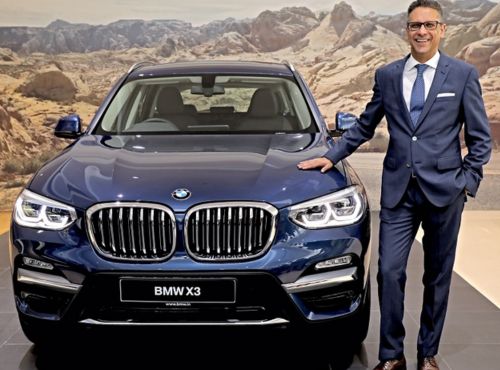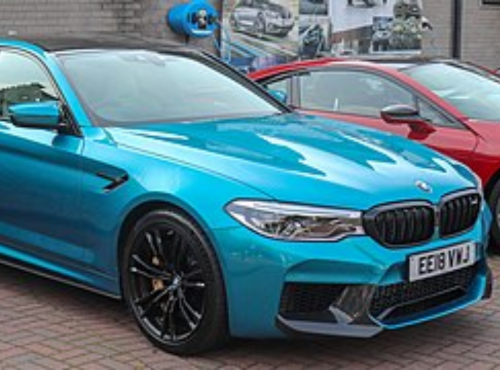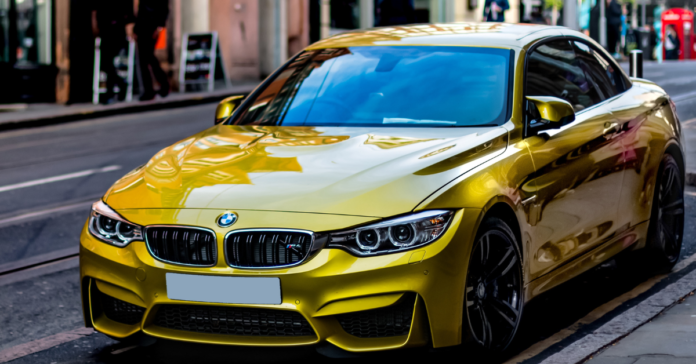Today, we will discuss the topic of who owns BMW. It is a German luxury car manufacturer. The company produces many vehicles, from small sedans and coupes to SUVs and performance cars. In 2013, the BMW Group sold over 1.5 million vehicles worldwide.
Have a look at the details of BMW ownership
1. BMW Ownership
When it comes to owning a BMW, the first question that often arises is its ownership structure. The German automaker has had a unique ownership model since its inception in 1916. It started as an aircraft engine manufacturer and later expanded into the automobile industry.
- Key brands of BMW
Today, the BMW Group comprises three key brands: BMW, MINI, and Rolls-Royce. These brands operate under separate units within the company while still being fully owned by the parent company. This allows for greater flexibility and autonomy for each brand to operate independently while sharing resources and expertise within the larger organization.
- Emphasises sustainability
Furthermore, BMW Group’s ownership structure also strongly emphasises sustainability and social responsibility. The company has significantly invested in renewable energy sources. For example, wind power and solar panels reduce their carbon footprint.
2. Who owns the BMW car company
In addition to BMW, Rolls-Royce, and Mini are also produced by BMW Group. Bavarian Motor Works is the official name of Bayerische Motoren Werke AG. Founded in 1916 by Franz Josef Pop, the company has its headquarters in Munich, Germany. Today, BMW is owned by the Quandt family, who are descendants of Herbert Quandt – a German industrialist. Who acquired a majority stake in the company back in 1959.

3. Shareholders of BMW
BMW has a vast network of shareholders. These individuals and institutions have invested their money into BMW to earn a return on their investment. Although they are often referred to as “owners” of BMW, it’s important to remember that shareholders don’t actually own any part of the company.
- Pension funds and insurance companies
Pension funds and insurance companies make up the majority of BMW’s shareholders. In addition to institutional investors, many individuals own BMW shares. Some may be die-hard fans of the brand who want to support its success financially.
The potential may draw others for profit from owning stock in a successful company like BMW. Regardless of why someone chooses to invest in BMW, there’s no denying that these shareholders play an important role in shaping the company’s future.
4. BMW’s Public Ownership
Founded in 1916, this German automobile manufacturer has been at the forefront of innovation and luxury for over a century. Unsurprisingly, people are curious about BMW’s ownership structure, especially considering how much they’ve grown in popularity over the years. The good news is that BMW is publicly owned so anyone can buy shares in the company on various stock exchanges worldwide.
- Financial result
This also means that BMW must report its financial results and other important information to shareholders through regular disclosures and filings with regulatory bodies like the Securities and Exchange Commission (SEC).
- Stay informed on online platforms.
If you’re interested in investing in BMW or want to keep up-to-date with their latest developments, plenty of resources are available online to help you stay informed. The official BMW website has a wealth of information about its history, products, and corporate governance structure.
5. Institutional Ownership of BMW
BMW is a household name in the automotive industry, known for producing sleek and high-performance vehicles. However, many people may not be aware of the significant role that institutional investors play in the ownership of BMW. Institutional ownership refers to shares of a company that large financial institutions own.
- 56% of BMW’s outstanding share
As of 2021, institutional ownership accounts for approximately 56% of BMW’s outstanding shares. This means these large financial players hold over half of the company’s ownership rather than individual investors.
One reason why institutional investors hold such a large stake in BMW could be because of its reputation as a solid investment choice. The company has shown consistent growth over the years and has weathered economic downturns relatively easily.
6. BMW Group.
The BMW Group is one of the most renowned automotive manufacturers in the world, with a history spanning over a century. BMW has established itself as a leader in creating innovative technology and functional and visually appealing designs.
- Aerodynamic car design
From developing driver systems to creating sleek, aerodynamic car designs. BMW constantly pushes boundaries to provide customers with driving experiences. The BMW brand is more than just cars – it represents a lifestyle. The company’s vision goes beyond selling vehicles, from fashion collaborations to art installations. With luxury and quality craftsmanship, owning a BMW becomes an experience that speaks to style-conscious individuals who value performance and design.
7. Governance & Possession
It’s established its name as one of the most iconic automotive brands globally. As a result, its ownership and governance are critical aspects that determine how it operates and makes decisions.
- As for ownership, BMW is a publicly traded company listed on the Frankfurt Stock Exchange and Munich Stock Exchange.
- The Quandt family owns over 46 per cent of the voting rights through their holding company.
- While other individual shareholders hold the remaining shares.
- This public ownership structure ensures that BMW remains transparent and accountable to all stakeholders, including investors and customers.
- Regarding governance, BMW’s management board comprises ten members led by Oliver Zipse as CEO.
- The supervisory board oversees their actions, with Norbert Reithofer serving as chairman.

8. Financial Performance
The financial performance of BMW has always been a topic of interest for investors as one of the world’s leading luxury car brands. The company has maintained strong sales figures throughout the years, with its cars being considered some of the most reliable on the market. BMW’s ownership structure is also unique, with a family holding a significant stake in the company.
- The Quandt family, who own nearly 47% of BMW, have played an integral role in shaping the company’s direction over the years.
- Their long-term perspective has helped BMW maintain steady growth and profitability even during periods of economic uncertainty.
- The rest of BMW’s shares are publicly traded on various stock exchanges worldwide.
- Despite facing challenges like increased competition from other luxury car brands and changing consumer preferences towards electric vehicles, BMW has remained profitable.
9. Founding Family Ownership
Founding Family Ownership is a term used to describe the ownership of a company by its founding family. This type of ownership has been around for centuries and is still prevalent in many companies today. The advantages of founding family ownership are many, including the ability to maintain control over the direction of the company and its values.
- One advantage of founding family ownership is that it allows the family to control the company’s direction.
- This means that decisions can be made with a long-term perspective rather than just short-term gains.
- Because the family members emotionally attach to their business, they are likelier to decide in their best interest rather than purely for profit.
- Another advantage of founding family ownership is that it helps preserve a company’s values and culture.
- Founding families often imbue their companies with strong ethical standards and principles that help guide organizational decision-making.
10. Ownership Changes and Restructuring in BMW’s History
As one of the world’s leading luxury car manufacturers, BMW has a rich history that spans over a century. Throughout the years, the brand has undergone significant ownership changes and restructuring to become the powerhouse it is today.
- Founded as an aircraft engine
In 1916, BMW was founded as an aircraft engine manufacturer in Munich, Germany. After World War I, it shifted its focus to motorcycle production before venturing into automobile manufacturing in the 1930s. However, during World War II, BMW was forced to produce military equipment for Nazi Germany and suffered significant damage to its factories at the war’s end.
Following Germany’s defeat in 1945, BMW was banned from producing aircraft engines and struggled financially. In 1959, Herbert Quandt became a major shareholder of the company and implemented significant restructuring measures that led to increased profitability.
11. Management Control
BMW is one of the most popular car brands in the world. It’s renowned for its luxurious designs, speed, and performance. But have you ever wondered who owns BMW? The answer is not as straightforward as you may think.
- While many assume that BMW is a family-owned business, it’s a publicly traded company.
- This means that anyone can buy company shares and become an owner.
- However, the Quandt family has significant control over BMW through their stake in the company.
- Stefan Quandt and his sister Susanne Klatten own almost 50% of BMW through their investment firm, which gives them tremendous decision-making power over the automaker.
- But despite their influence, BMW operates like any other public company with a board of directors overseeing management decisions.
12. Corporate Governance Policies
Are you considering purchasing a BMW and want to know more about the company’s ownership and corporate governance policies? Look no further! BMW is a German multinational corporation. The company is publicly traded, meaning they have shareholders who own a portion of the business.
- Day-to-day operation
BMW’s shareholders elect a supervisory board that oversees the management board responsible for day-to-day operations. This dual-board system ensures checks and balances are in place to prevent individuals or groups from having too much power in decision-making.
- Strict ethical guidelines
Additionally, BMW has implemented strict ethical guidelines for its employees and suppliers to ensure fair business practices are always followed. These measures help maintain transparency in their operations and protect the interests of all stakeholders involved.
Furthermore, BMW prides itself on sustainability efforts throughout its supply chain and production processes.
Some frequently ask questions.
1. Does Germany own BMW?
Many people believe that BMW is German-owned, and they’re right. While BMW is headquartered in Germany, producing cars there since the early 20th century, the company’s ownership structure is more difficult than that.
The majority of BMW shares are owned by a group of shareholders, with the largest single shareholder being Susanne Klatten, who owns around 21% of the company. Ms Klatten inherited her stake in BMW from her father, Herbert Quandt, who played a vital role in the company from bankruptcy in the 1960s.
2. Does Ford own BMW?
Contrary to popular belief, BMW is not owned by Ford. BMW is an independent company that has been producing luxury cars since 1916. Bavarian Motor Works is the full name of Bayerische Motoren Werke AG. In Munich, Franz Josef Popp and two associates founded the company.
For years, BMW has become known for its sporty performance vehicles and innovative technology. They remain autonomous while working with other Frontier GTA companies, such as Toyota, on hybrid powertrains and navigation systems. So next time someone asks you who owns BMW. You can confidently tell them it’s not Ford or any other major automobile manufacturer.
3. How rich is the owner of BMW?
The German billionaire heir, engineer, and industrialist Stefan Quandt was born on 9 May 1966. On Bloomberg’s Billionaires Index, he ranked 89th with a net worth of US$23.2 billion as of October 2021. According to Forbes’ 2021 Billionaires list, the current chairman of BMW Group, Susanne Klatten, has a net worth of $27.5 billion. She’s also known as one of the richest women in Germany and holds significant stakes in other companies. Such as Altana AG and SGL Carbon SE.
4. Who owns BMW shares?
BMW AG is one of the world’s most successful automobile manufacturers, but its success is only possible due to the company’s ownership structure. As a publicly traded company, BMW has shareholders worldwide who own portions of the business.
- The largest shareholder in BMW AG is Susanne Klatten, a German billionaire and heiress to the Quandt family fortune. She owns approximately 20% of BMW shares through her investment vehicle, SKion GmbH.
- Other significant shareholders include Stefan Quandt (brother of Susanne), who owns around 17% of shares; institutional investors such as BlackRock and Vanguard; and individual investors.
What’s interesting about owning shares in a public company like BMW is that anyone can purchase them on stock exchanges such as Frankfurt or New York.
5. Who owns Audi?
The respected German automotive giant Volkswagen AG owns it! Audi itself was founded in 1909 by August Horch and has since become a symbol of luxury and innovation in the automotive industry. However, it wasn’t until 1964 that Audi became part of the Volkswagen Group after being on the brink of bankruptcy. Since then, Volkswagen has invested heavily in Audi’s research and development, leading to impressive technological advancements over recent years.
6. Who does BMW own?
Rolls-Royce and Mini on the BMW. Mini is a British car brand famous for its compact and stylish designs. In fact, Mini has been a subsidiary of BMW since 2000 and has since released several successful models, such as the Mini Cooper and Countryman. Another company under the BMW umbrella is Rolls-Royce Motor Cars. A luxury car manufacturer based in England. It acquired Rolls-Royce in 1998, enabling it to produce high-end vehicles that cater to discerning customers worldwide.
7. Does Volkswagen own BMW?
Volkswagen is a German company that produces its own line of cars. BMW luxury car is also a German company with its own unique luxury vehicles.
Known about, who does own Mercedes, it’s actually Daimler AG. This company is a multinational automotive corporation that owns several brands, including Mercedes-Benz and Smart. While Daimler has had its ups and downs over the years, it remains one of the largest and most successful companies in the automotive industry.
While Volkswagen may not own BMW, many other interesting connections exist between car manufacturers worldwide. For example, did you know that Toyota and Subaru have collaborated on several vehicles over the years?
8. Who owns Mercedes?
While Daimler AG is the parent company of Mercedes-Benz, it shares ownership with another well-known car manufacturer: Renault-Nissan-Mitsubishi Alliance, two of the biggest names in the automotive industry, have teamed up to own one of the most remarkable brands in luxury cars.
It all started in 2010 when Daimler AG and Renault-Nissan allied to share technology and resources.
Conclusion:
In conclusion, BMW is a company around for over 100 years and continues to be one of the most iconic brands in the world. BMW ownership can provide drivers with a luxurious, efficient car. We hope this has provided you with some insight into BMW’s history and what to expect from the company in the future.

